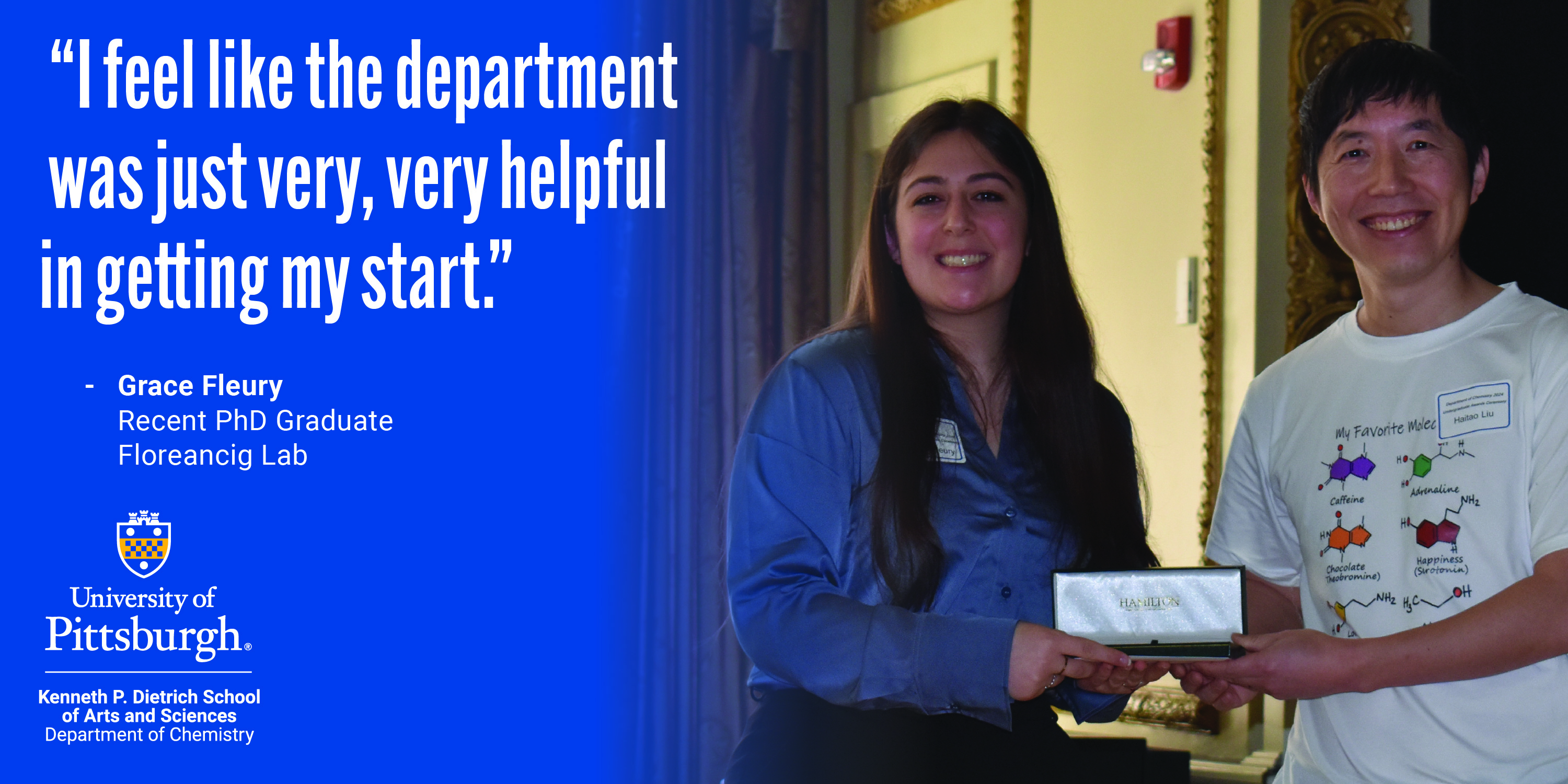
If you’re an undergrad, Grace Fleury wants you to do research.
“I would tell them ‘do research,’” Fleury says. “It doesn’t have to be in the chem department, it could be a bio lab or one at UPMC. It’s okay if it isn’t your thing, but you should at least give it a shot. Even if you don’t like it, you learn a lot of valuable skills like problem solving, or how to read literature, or you just learn a lot of really cool science.”
Fleury, a 2024 alum from the Floreancig group and, current PhD candidate in the Sorensen group at Princeton, received a National Science Foundation Graduate Research Fellowship this spring. The NSF Graduate Research Fellowship is a highly selective fellowship awarded to top graduate students in the sciences in the United States, and provides three years of funding to support fellows’ research.
In her graduate research, Fleury is working on syntheses of two natural products: one an anti-cancer agent with a polycyclic steroidal skeleton and the other a bridged bicyclic alkaloid with antimicrobial activity.
“I just love research—I think it's a really interesting challenge,” Fleury says. “I also enjoy teaching, and that was something I loved at Pitt so much was that I got to be an undergrad TA. I loved getting to share and explain things about this subject that I like so much.”
Fleury plans to continue in academia after she graduates, trying to inspire the next generation of organic chemistry students. She says Pitt played a fundamental part in her academic career, giving her the opportunity to do both two and a half years of research and TA multiple semesters of organic chemistry.
Fleury was awarded the prestigious NSF Fellowship this year, building on an already distinguished undergraduate career that included receiving the Barry Goldwater Scholarship. She credits the Pitt Chemistry Department, and especially her mentor Professor Floreancig, with encouraging her to pursue these competitive opportunities.
“My advisors and Dr. Floreancig really encouraged me to go for fellowships and scholarships,” Fleury says. “I also learned how to ask for help when I need it, which has been good, honestly. I feel like the department was just very helpful in getting me my start.”
Through her work at Pitt and now at Princeton, Fleury has focused on small molecules with biological activity—a consistent thread that helped ease her transition into advanced research.
“I was lucky enough to start research with Dr. Floreancig in my sophomore year. So I felt that with all the opportunities to do research I gained a lot of technical skills which have helped me hit the ground running,” Fleury says. “I didn’t have to spend too much time learning and was able to start doing my own research.”
Fleury says her professors at Pitt, and especially Floreancig, were indispensable in preparing for Princeton. She not only got teaching and research experience, but also took a number of electives and graduate classes which prepared her for the rigor of graduate school.
“At Pitt, I did really feel that all of the professors and grad students were very accessible,” Fleury says. “If you wanted to reach out and just like cold email or drop by Chevron 107, it was always well received. They were super supportive.”
Ultimately, it all goes back to our roots. Fleury says her chemistry aspirations began in high school and have continued to be cultivated throughout her academic career.
“I really liked chemistry from the first class that I had in high school and everything I’ve taken since,” Fleury says. “Then I got to organic chemistry, I was just kind of like, wow, this really makes sense, like this is my bread and butter. And I just kind of wanted to know more. And it was pretty much one of the only subjects that I felt like I just can't get enough.”

